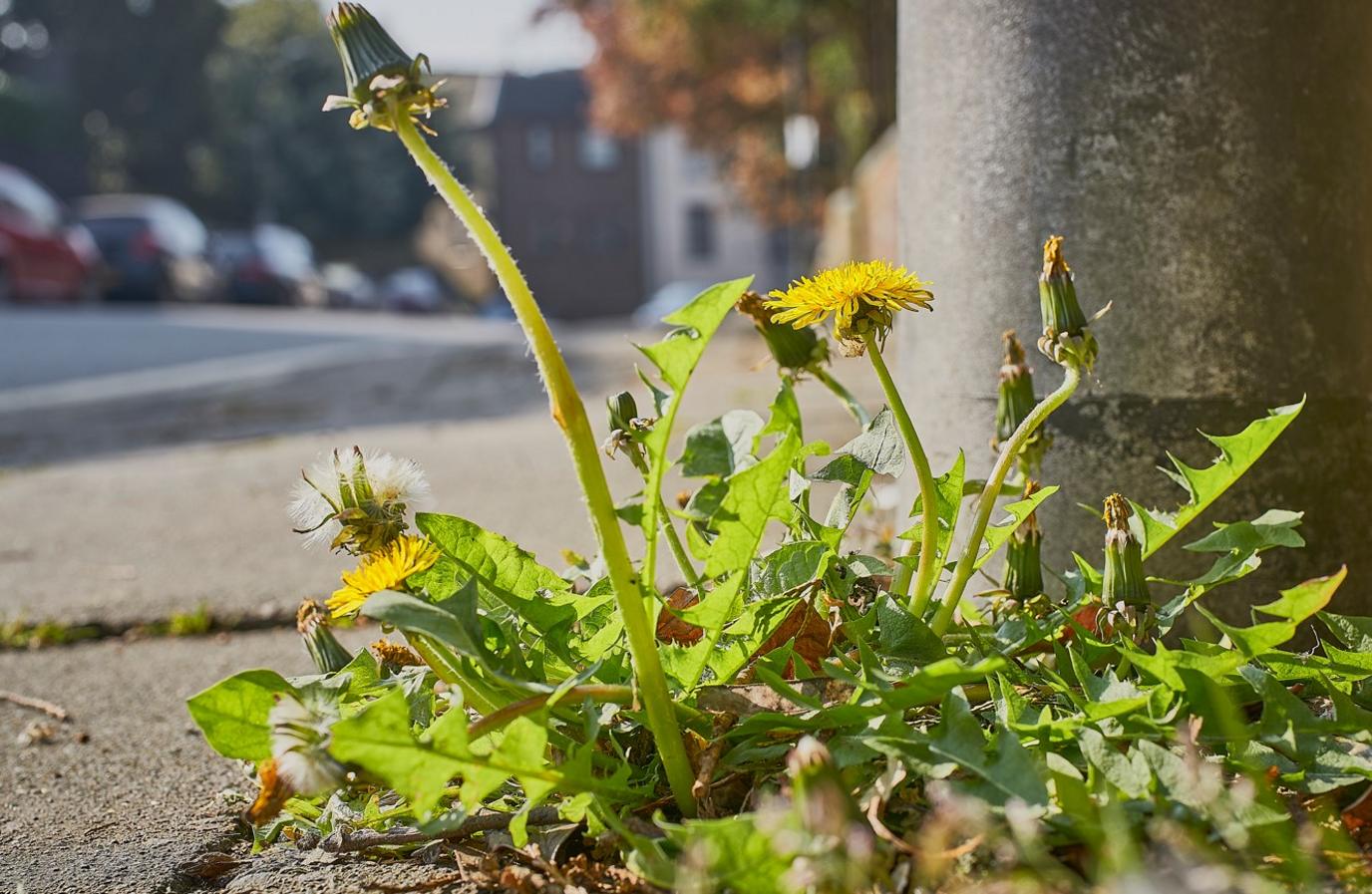Brighton & Hove City Council reconsiders use of weedkiller after ban
- Published

There is no national ban on glyphosate use but some councils have chosen not to use it
A city council which banned the use of a type of weedkiller is to reconsider its policy after finding manual removal ineffective.
Brighton & Hove City Council banned the use of glyphosate in 2019 after it was linked to cancer and a decline in bee populations.
But on Monday, it said continuing with manual removal would see the city's weed problem continue to get worse.
It said councillors would meet on Tuesday to discuss potential solutions.
Tim Rowkins, chair of the City Environment, South Downs and the Sea Committee, said the authority had a duty to keep the streets "safe and accessible" and to limit the damage weeds were causing to highways.
He said: "Relying on manual removal hasn't been effective and requires a lot of time and money. Even if we were able to resource it... the problem would continue to get worse year on year."
He also said weeds were negatively affecting the "look and feel" of the city.
A report to the council has suggested three possible solutions, which will be discussed on Tuesday.
They are:
to continue to remove weeds manually until a cost-effective and viable non-glyphosate option is available
to support the use of traditional glyphosate techniques
to support the use of a controlled-droplet application of glyphosate
It also recommends the council continues not to use glyphosate in parks and open spaces where there are playgrounds, leisure activities and dog walkers, except when dealing with an invasive species.
But Josie Cohen of Brighton-based Pesticide Action Network UK said: "To talk about the trip hazards of weeds and solve that problem by spraying a chemical with strong links to cancer seems completely bonkers to me."
Neighbouring East Sussex County Council approved the use of glyphosate-based products in December, to treat weeds on the authority's highway network.
It said there was "no alternative solution" at present.

Follow BBC South East on Facebook, external, on X, external, and on Instagram, external. Send your story ideas to southeasttoday@bbc.co.uk, external.